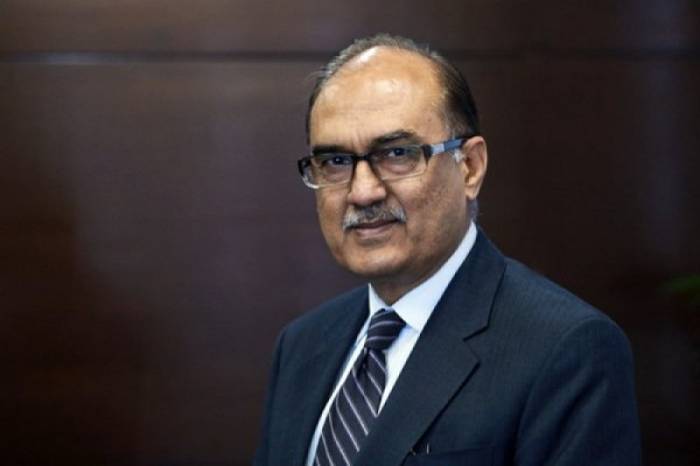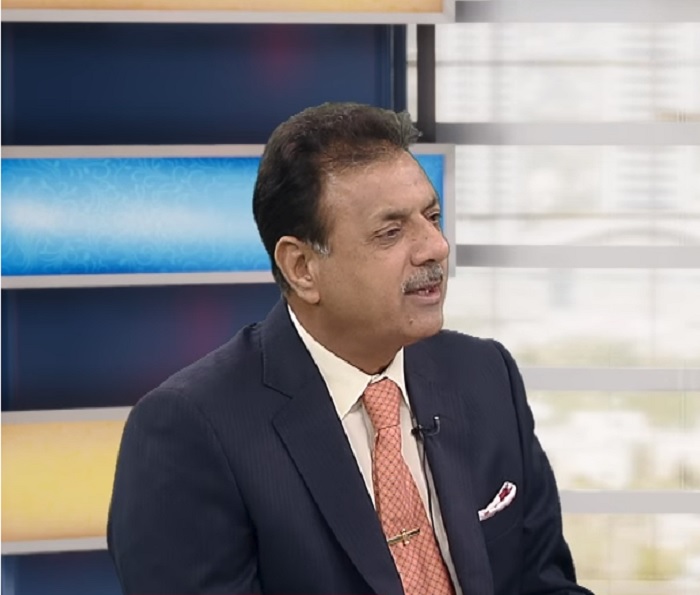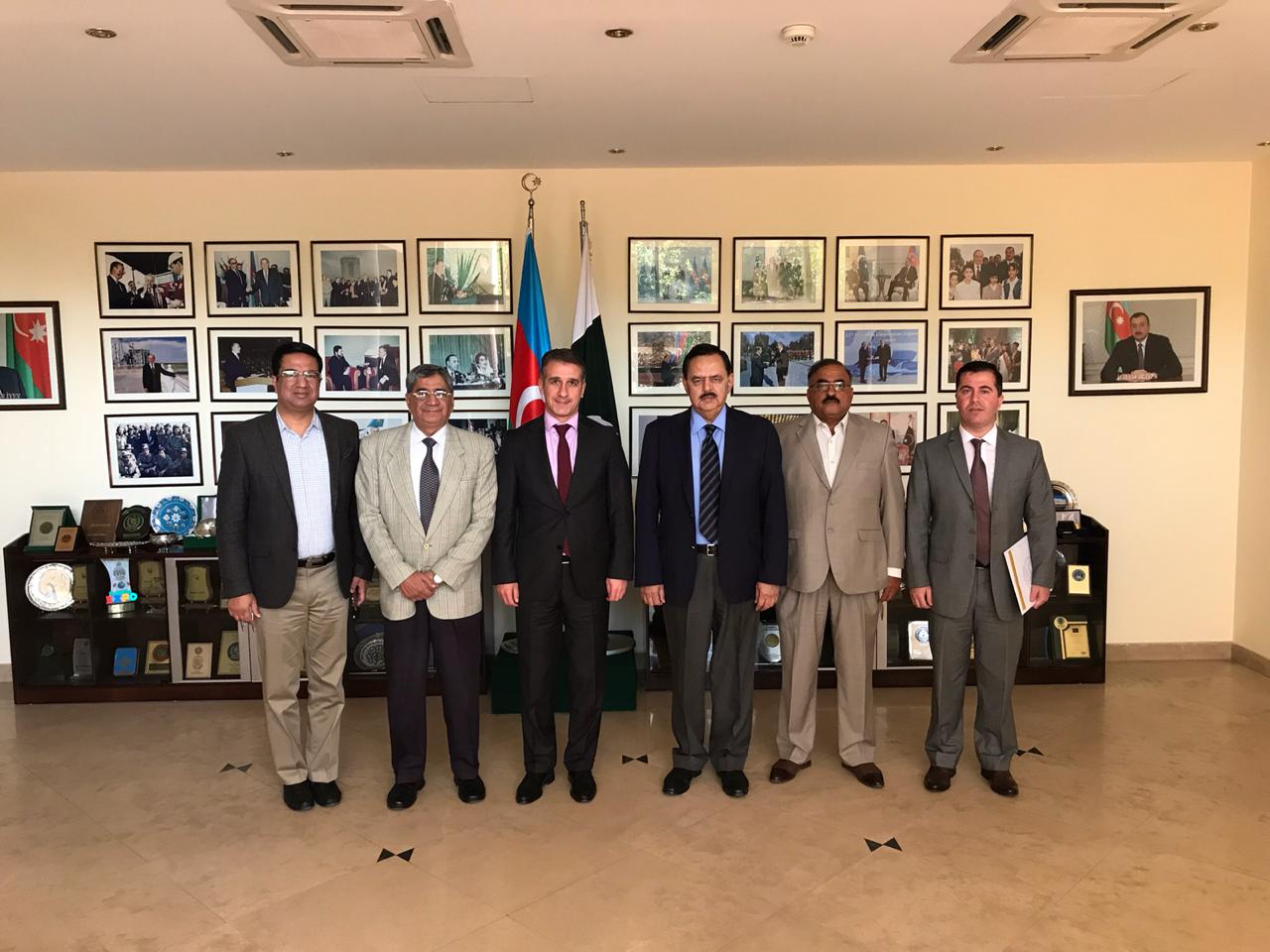General Naeem Lodhi: "The Nagorno-Karabakh dispute, like Jammu and Kashmir issue, is also a threat to regional peace and stability"

Lieutenant General Naeem Khalid Lodhi HI (M), (Retd) - Former Federal Minister of Defense (Pakistan) gave an interview to EuraAsiaAz.
- Azerbaijan hosted the summit of the Non-Aligned Movement. The summit was also attended by President of Pakistan Arif Alvi. How do you evaluate the outcome of the summit? How important is it for our countries?
- Basically, the Non-Aligned Movement unites 120 countries of the world. The core of the foreign political course of these countries is considered to be a refusal to participate in military and political blocs and a peaceful coexistence based on the principles of independence and equality. Currently, approximately 55% of the world's population lives in countries of the Non-Aligned Movement. These states possess more than 75% of the world's oil reserves and over 50% of the world’s gas reserves, and huge human and natural resources. All this potential can be transformed into a powerful economic force that can influence world developments.
For Azerbaijan, the Summit of the Non-Aligned Movement in Baku on 25 Oct, is yet another opportunity to draw the world's attention to the long-standing conflict, and its solution, which is hampered by the intransigence of Armenia. The chairmanship of the organization will further enhance the role and authority of the Movement in the system of international relations, promoting its basic principles at the international level, stimulating the formation of interstate relations, contributing to the strengthening of peace , security and sustainability of the region.
The President of Pakistan, Arif Alvi made the remarks at the 18th NAM Summit that Azerbaijan’s chairmanship will continue to promote the interests of the NAM member-states. The President was of the view that today, the world community is facing severe challenges that impede long-term peace. Climate change, inequality, poverty, refugees, and many such problems determine the current precarious situation in the world. These challenges should be addressed adequately. In this regard, the holding of the NAM summit in Baku is extremely timely. Today, the Non-Aligned Movement is the second largest political platform after the UN, uniting in its ranks the largest number of countries. It is important for the Non-Aligned Movement to find its place in the emerging world architecture as a balancing and restraining factor for promoting international peace and security.
- Azerbaijan is looking forward to the visit of Prime Minister Imran Khan. Imran Khan visited Turkey several times. Is there any information about his visit to Azerbaijan? In your opinion, what issues would the Pakistani side like to discuss with Azerbaijan?
- The Prime Minister of Pakistan, Imran Khan is very keen to construct relations with the Central Asian States, and especially with Azerbaijan. Soon he is likely to visit Azerbaijan . Azerbaijan and Pakistan have been supporting each other at political and diplomatic levels on all international forums. PM Imran Khan’s visit will further strengthen our relations.
Today, Pakistan and Azerbaijan maintain friendly relations and develop bilateral strategic cooperation in many fields including political, military, economy, information and communications, transportation, aviation, tourism, culture, and education as well. The cooperation of our countries in the field of energy will bring bilateral trade to a new level. But the lack of direct geographic links seriously hinders bilateral trade and economic cooperation.
With reference to the current dynamics, trade and economic cooperation between our countries could be much stronger. Pakistan and Azerbaijan are now taking concrete steps to deepen trade as well as economic and military-technical cooperation. The energy sector will benefit from the supply of Azerbaijani oil and gas to Pakistan. I think that we will soon see the positive results of these efforts.
Azerbaijan in my opinion, should be interested in expanding of politico-military ties with Pakistan, as the experience of Pakistani Forces in defeating terrorism and significant participation in the UN peacekeeping mission throughout the world are widely known and recognizable. Cooperation between Pakistan and Azerbaijan within the framework of international transport corridors will increase mutual trade between countries, Pakistan will be able to transport its goods to Azerbaijan, Turkey, Georgia, and even Europe. With the help of the Baku-Tbilisi-Kars project, Pakistan will be able to cut through a new window to Europe.
We can provide more scholarship programs to each other. We can work together in the field of tourism as well. The education exchange between scholars and professors of different research Universities of both countries can help bring them further closer.
There are quite a few new issues that our countries should discuss. One such important issue is the direct flights between Baku and Islamabad. The solution to this issue will benefit both countries, not only for the expansion of tourism but also from the point of view of trade and investment. All these issues will probably be discussed during Prime Minister Imran Khan’s visit to Azerbaijan.
- Azerbaijan and Pakistan are actively cooperating in the field of weapons and military training . How do you assess the present military cooperation between our countries? In your opinion, what modern types of weapons can Pakistan offer to Azerbaijan?
Regarding the military cooperation between Azerbaijan and Pakistan, it is noted that it is possible to produce weapons for common purposes, as well as laying the foundations of military enterprises. On the other hand, Pakistan aims to strengthen and further expand its relations with Azerbaijan in the field of military arms and equipment and training .
Both the countries are the signatories of an agreement on mutual military cooperation. Pakistan is known for its ability to manufacture small and medium arms, combat and trainer aircrafts, tanks, missiles etc. Over the past decade, Pakistani military experts trained numerous Azerbaijani military personnel and units. In addition to this, Pakistan and Azerbaijan held bilateral military exercises.
The two countries signed a defense agreement in May of 2003, which allows Azerbaijani military staff, in particular, special force units, to take part in annual military drills along with Pakistani armed forces. As a part of the agreement, Azerbaijani naval personnel participated in the biggest Pakistani-led multinational exercise, AMAN-2013, held on March 2013 in the Arabian Sea. Despite the variety between their military equipment and defense industries, Azerbaijan-Pakistan military cooperation can make a significant contribution in terms of regional security.
Pakistan would like to expand its footprint into the defense market of Azerbaijan, as it is economically and strategically important for Pakistan to find new avenues to export aircraft, missile systems, tanks, and other kinds of military equipment.
A meeting was held between the Azerbaijani and Pakistani defense ministers Colonel-General Zakir Hasanov and Pervez Khattak on 22 March 2019. They agreed on the point that the relations between Azerbaijan and Pakistan have deep roots. During that meeting, both sides discussed the development of cooperation in the field of security, as well as military, and other spheres, and also exchanged views on many other issues of mutual interest. Pakistan Defence minister gave assurance that the joint exercises of the Azerbaijani and Pakistani Special Forces will be held in the near future.
The Ambassador of the Republic of Azerbaijan to Pakistan Ali Alizada has also reiterated his country’s keenness to further strengthen military ties with Pakistan, hoping that robust security cooperation with Islamabad helps it deal with its territorial dispute issues more efficiently. The two countries have enough potential to take their bilateral trade to new heights.
Except for the military cooperation, the two countries have also deliberated upon to work together in other sectors including agriculture domain. Pakistan can import agricultural products from Azerbaijan, and likewise, Pakistan can export its agricultural products such as rice, fruits, sports goods, and surgical instruments to Azerbaijan to uplift the trade volume.
- You were appointed Minister of Defense of Pakistan in 2011. Can you tell us how, during your tenure as defense minister, military-technical cooperation between Pakistan and Azerbaijan developed?
- Taking into account their close ties, the current level of military cooperation between Azerbaijan and Pakistan needs to be emphasized. While Azerbaijan’s defense industry has strategic relations with various countries, Baku has expanded military cooperation with Pakistan in particular over the last years.
Not only the two countries shared military cooperation but Azerbaijan had extended its support to Pakistan during natural calamities. Heydar Aliyev Foundation regularly undertakes humanitarian projects in Pakistan. It has also extended its support to build girl's schools in the city of Muzaffarabad, Azad Kashmir after 2005 earthquake and also extended assistance to Pakistan in 2010/2011 floods. The Governments of Azerbaijan and Pakistan are working on to explore new markets to boost exports and to create joint ventures between the counterparts from both sides.
The main reason driving Pakistan-Azerbaijan politico-military cooperation is the fact that Baku is still dealing with unresolved territorial conflict in the Nagorno-Karabakh region. The country manufactures the well-known Istiglal sniper rifle, which has been used by Pakistani Special Forces since 2012. As Pakistan has a very developed defense industry, we can work together to establish joint production in future.
- Recently, the Pakistani Daily Times reported that Pakistan is preparing to export JF-17 fighters to 47 countries, including Azerbaijan. What do you know about this? When will Pakistan deliver these fighters to Azerbaijan? How effective are these fighters in military operations?
- Pakistan is now contemplating export of high tech equipment to desirous countries in Asia, Middle East and its traditional defense partners in Africa. Pakistan is all set to export JF 17 Thunder Fighter jets to four countries including Azerbaijan. This has been discussed between the two sides for at least a decade but discussions have seemed to pick up steam over the last year. Pakistan also has been promoting the export of Super Mushshak trainer aircraft to Azerbaijan.
The subject of Chinese fighter aircraft and other military hardware supplied to Pakistan for exports to third countries figured high on the agenda of Pakistan Army chief’s visit to Beijing. In 2019–2020, the mass production of JF-17 Block 3 fighters is scheduled. Furthermore, Pakistan hopes to sell them to Malaysia and Azerbaijan as well.
- You know that Azerbaijan lost Nagorno-Karabakh and 7 regions as a result of the military aggression of Armenia against Azerbaijan. How do you see the solution to this problem?
Pakistan has opposed the unilateral action of Armenia to change the status quo in the disputed Nagorno-Karabakh region. Pakistan’s Foreign Minister Shah Mahmood Qureshi has urged Armenia to withdraw its forces from Azerbaijan’s Nagorno-Karabakh. Shah Mahmood Qureshi while addressing a sideline meeting at the 74th session of UNGA in New York said that Pakistan is against the action of any country to change geography, population, economic, social and cultural identity and institutional structure in Nagorno-Karabakh.
Pakistan’s position is that the solution has to be found within the territory of Azerbaijan, complete return of occupied Azeri lands by Armenia, in accordance with the resolutions of the UN Security Council, and the withdrawal of Armenian army from Nagorno-Karabakh and adjacent districts along with the return of IDPs and refugees to their homes.
The Nagorno-Karabakh dispute, like Jammu and Kashmir issue, is also a threat to regional peace and stability. The international community has to play its due role to resolve the dispute and ensure the repatriation of the displaced people.
Pakistan is one of Azerbaijan’s strongest supporters in the light of the Nagorno-Karabakh conflict, and it is one of the few countries not recognizing Armenia’s status, due to the occupation of Nagorno-Karabakh region by Armenia’s armed forces. In a similar spirit to that of Pakistan towards the Nagorno-Karabakh conflict, Azerbaijani leadership remains committed to Pakistan’s position on Kashmir conflict. Baku’s stand on the Kashmir is based on the same principle that it should be resolved in accordance with the UN Security Council resolutions.
Similar articles
Add
Comments (339)
Add comments





/india-blames-pakistan-for-ceasefire-violation-in-kashmir-470431530-58b08d6e3df78cdcd8bc1acd.jpg)

